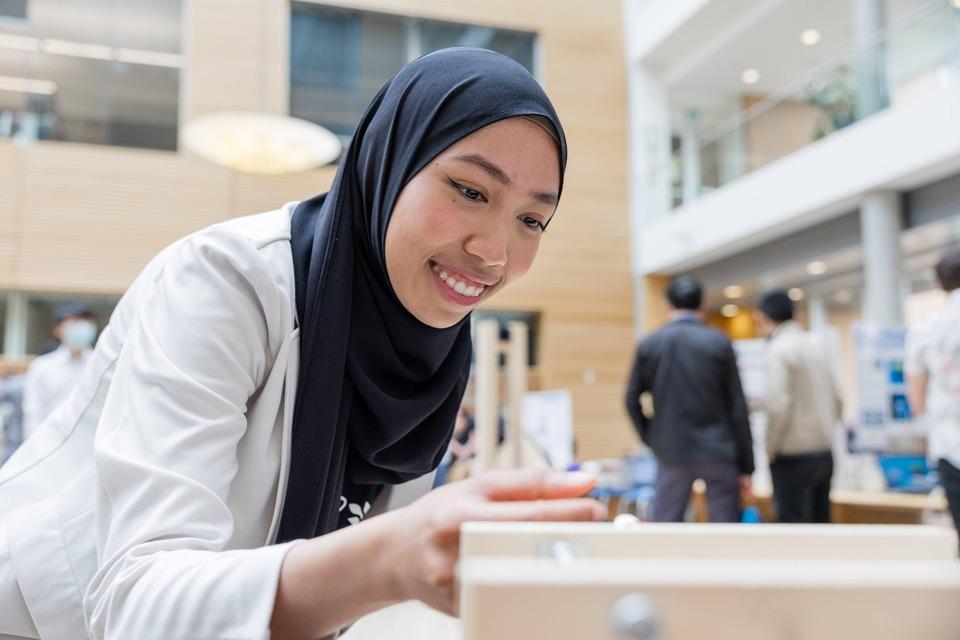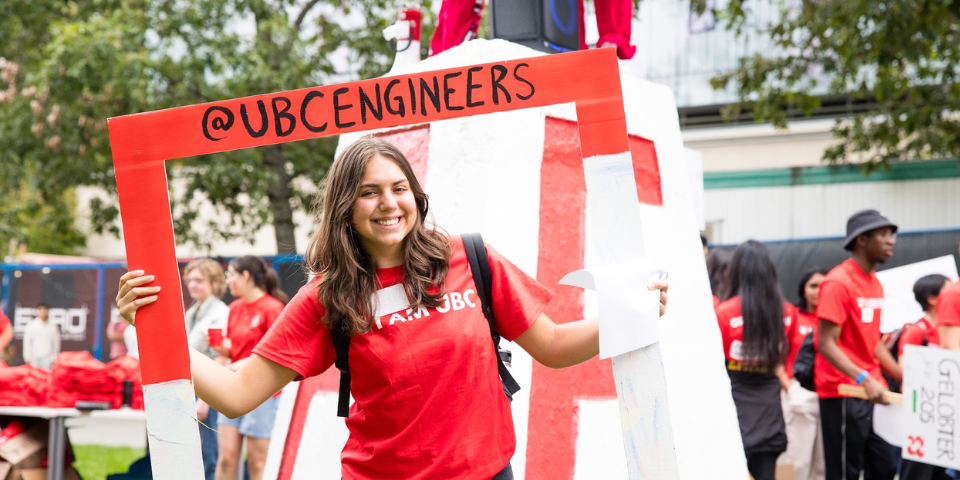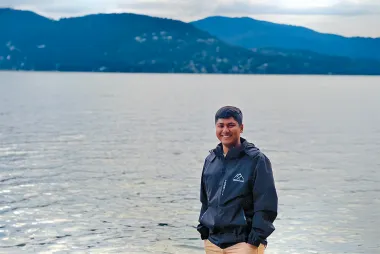
Mining engineers focus on finding ways to extract minerals or metals from the earth. Their expertise in mining, mineral processing and mine waste management is highly sought after around the world, wherever mines are located.
Mining engineers address a wide range of challenges, from building mines in remote areas or at large depths to finding ways to reduce the environmental and social impact of mining operations.
UBC’s Mining Engineering program is consistently ranked among the top in Canada. We offer a broad professional degree program that integrates courses on engineering principles, earth sciences, and mining and mineral processing with content covering health, safety, management, economics, and environmental and social issues. The integration is done by means of case studies, field trips, guest speakers and design projects. At UBC, you’ll be equipped to meet these challenges and be prepared to participate in the many significant opportunities available in the global mining industry.
Vancouver Campus
Learn more at You UBC's program page or visit us at mining.ubc.ca
Why study this program
Mining engineering graduates are able to work in a variety of different fields. Common areas of focus they can pursue include: health and safety, mine management, mineral and metal extraction. And economics.
Courses & Specializations
Students will first complete a foundational first year of engineering and then take specialized courses beginning in second year, once they are placed into their engineering discipline.
Here is a sample of the courses Mining Engineering students can take in each year of study:
| Year 2 | |
|---|---|
| MINE 291 | Introduction to Mining |
| MINE 224 | Mineralogy for Mining Engineering |
| MINE 292 | Introduction to Mineral Processing |
| EOSC 210 | Earth Science for Engineers |
| CIVIL 210 | Soil Mechanics |
| Year 3 | |
|---|---|
| MINE 310 | Surface Mining and Design |
| MINE 350 | Modeling and Simulation |
| MINE 333 | Flotation |
| MINE 396 | Engineering Economics |
| MINE 331 | Physical Mineral Processes |
| MINE 380 | Mine Waste Management |
| Year 4 | |
|---|---|
| MINE 465 | Materials Handling |
| MINE 432 | Mineral Process Control |
| MINE 404 | Strategic Issues in Mining |
| MINE 434 | Processing Precious Metal Ores |
| MINE 486 | Mining and the Environment |
For a more in-depth look at the curriculum, please consult the Academic Calendar and course descriptions.
Learning outside the courses
Every year the 4th Year graduating class plans and fund-raises for a field trip to a mining region overseas. It wouldn’t be an exaggeration to say that for many students these trips are probably one of the best experiences of their lives. Some past locations include Peru, Greece, and South Africa.
Enhance Your Education (further education)
Mining engineering graduates looking to continue their education can pursue professional programs and graduate studies. The analytical and problem-solving skills students gain from an undergraduate engineering degree translate well into the qualities needed for Medicine and Law School. These students also make strong candidates for UBC’s Master of Engineering Leadership in Clean Energy Engineering which offers the unique combination of business and engineering courses for students looking to further their studies in the clean energy field.
Careers
Being one of the highest paid engineers in Canada with a reported mean salary of $81,000 (source) in 2021 and an expected employment growth rate of 1.3% over the next 5 years (source), graduates of Mining Engineering are well equipped to pursue careers in mining companies, consulting engineering companies, manufacturers, government, and educational and research institutions (source). Common career titles (source) for Mining Engineering graduates include: consulting mining engineer, mine design engineer, mine development engineer, mine safety engineer, mine ventilation engineer, mines exploration engineer, mineral engineer, mineral dressing engineer.
Employers
Both current students and graduates are able to work for a wide range of employers. Some of the biggest employers of UBC Mining Engineering students over the past several years include: Teck Resources, Copper Mountain Mining, and Goldcorp.
Alumni
Design Teams & Clubs
Design Teams
There are over 30 Engineering Design Teams at UBC. Joining an engineering design team is an excellent opportunity for students from all disciplines to collaborate on a wide variety of design projects and gain relevant teamwork, leadership, and technical skills transferrable to future careers.
See the full list of UBC’s Engineering Design Teams
Clubs
There are many ways engineering students can get involved, including joining clubs relevant to their discipline. Clubs relevant to Mining Engineering include:
Research
The Mining Engineering department is involved with research in advanced mining and mineral processing systems, recycling electronic waste, mine energy systems, and multiphysics characterization of geo-materials and processes. The department has access to the following research facilities and research groups:
Advanced Mine Energy Systems:
The Advanced Mine Energy Systems research group focuses mainly on the development of ultra-efficient, renewable and decarbonized mine energy systems. Current research projects include:
Application of microwave-assisted fragmentation in excavation and comminution of hard rocks/ores
Hybrid renewable energy system for application in remote mines
Design of integrated solar-borehole thermal storage systems
Spray cooling and heat recovery in mine ventilation
Numerical and experimental investigation of fluid flow and heat transfer of flue gas carbon sequestration in mine wastes
Laboratory for Accelerated Discovery in Resource Engineering (ADRE) Lab:
The Laboratory for Accelerated Discovery in Resource Engineering Lab is specifically focused on the development of connected and smart technologies to disrupt and digitally transform the natural resources sector. Current research projects include:
5G-Enabled Digital Mine Testbed
Urban Mining Innovation Centre:
- Is an initiative that studies the scientific, business, and social approaches of the recovery of valuable materials/metals from urban waste streams. For example, sewage sludge has been shown to contain gold and copper grades that exceed the grades of many operating mines.
Minors & Dual Degrees
Engineering students are able to complement their studies with 5 Minors available or a Dual Degree with Arts. Students interested in a minor can apply to their chosen option in their third year of study. A minor or dual degree will likely extend your degree past 4 years.
Co-op
Participation in the Engineering Co-op Education program gives students the opportunity to gain up to 20 months of paid relevant work experience during their degree. This experience provides an excellent opportunity for students to explore different industries, apply their studies to the working world, and create connections with future employers. The Co-op program will extend your four-year degree to five years. Participation is optional and students apply to join Co-op in their second year of study.
International Experiences
Students can embark on an unforgettable experience abroad while earning credits towards their engineering studies. Opportunities include the Coordinated International Experience (CIE) exchange program, the Go Global exchange program, and the Global Engineering Leadership courses. The CIE program is customized for Applied Science students and features 18 international partner institutions across 3 regions. All of the international experiences allow for students to build an international network of peers, professors, and potential employers.












